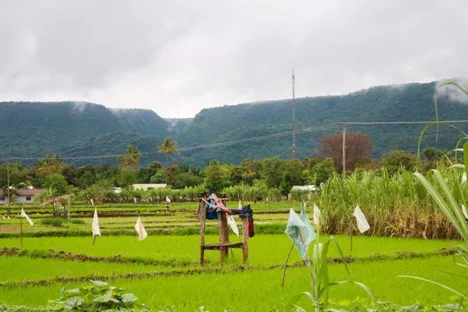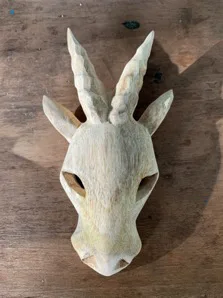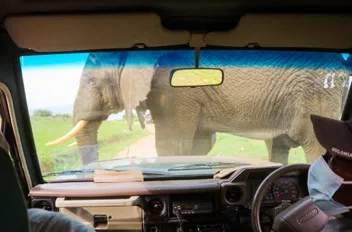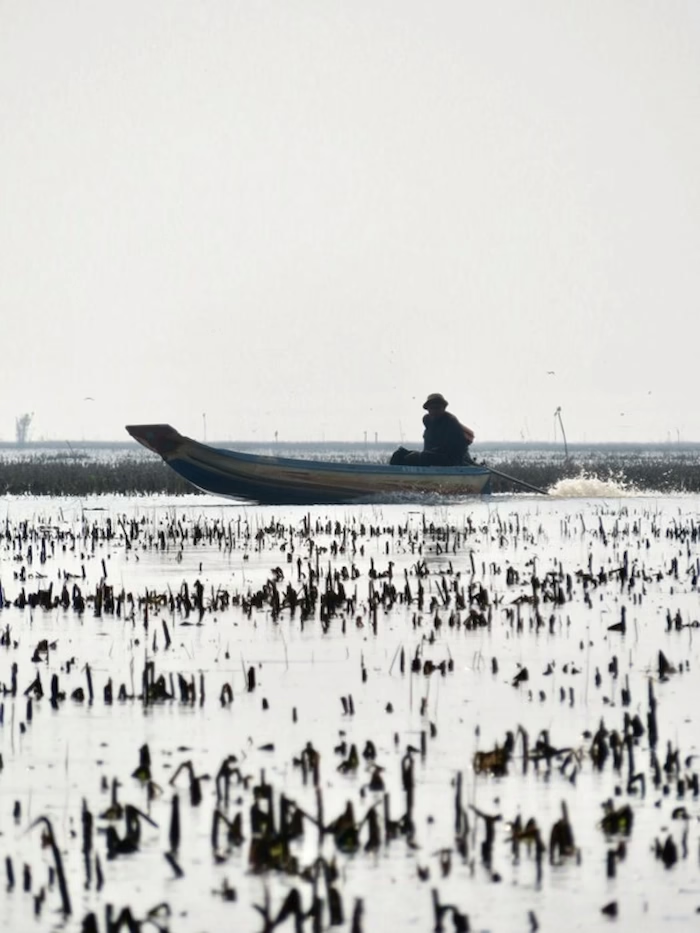First Impressions of Tanzania
After 30 hours in transit, I arrived to find the beautiful lush landscapes and warm temperatures of Rhotia.
Right now, I am studying at the Center for Wildlife Management at SFS Tanzania. We are located in the Arusha region in a town called Rhotia, between the Tarangire-Manyara and Ngorongoro National Parks. This location has been a blessing, as we have been able to do field observations, lectures, and research in tandem with the topics we are studying.

A picture from our field lecture in the rice paddies of Mto wa Mbu. (Photo provided by the author).
After 30 hours in transit, I arrived to find the beautiful lush landscapes and warm temperatures of Rhotia, much different from the cold and dark times at home. Here we have 19 students and about as much staff. We are 16 girls and 3 boys, and we all get along great! What I’ve enjoyed most about being here so far is a) the food, b) the people, and c) the experiences. Our food has been whole and hearty, with lots of fresh vegetables, fruits, carbs, and protein. We get to help make breakfast as well! I love being so close to the sources of all of my meals, and we can even request items to cook/bake the things we’re missing from home.
The people are equally amazing, each and every student on the program is ready to learn and work with each other, and we all share a passion for the environment. The teachers and staff are also super knowledgeable and have been tremendously valuable in learning both inside of the classroom and out. I come from an International Affairs background with a focus on environmental policy, so our classes in Wildlife Ecology, Wildlife Management, Environmental Policy, and Swahili, Society & Culture have introduced me to a breadth of knowledge, which my peers often have to help me study. We also love to go on excursions on the weekends, and so far I have been able to do a few hikes and learn how to carve wood into a gazelle from some local craftsman.

The gazelle mask I helped carve (emphasis on the ‘helped’!). Photo courtesy of the author.
Lastly, the experiences so far have been phenomenal. To illustrate the type of work we do on a day in the field, let me walk you through last Monday. We started our day bright and early, with an 8am drive to an overlook of Manyara Lake, where we stopped to talk about current conservation and land use issues in the region. Then, we ventured farther down the road into the nearby valley town of Mto wa Mbu, which means “The River of Mosquitos” in Swahili. Fortunately, the water is now used for irrigating rice and other crops, and therefore isn’t stagnant enough for mosquito reproduction. Here, we received a guest lecture on the issues of human-wildlife conflict due to climate change, and learned that hippos often invade the rice fields at night and have to be chased away with fire. We also talked about governmental structures set up to deal with wildlife policy and management. We made one last stop on the side of the road near a Maasai settlement, and learned about how the traditionally pastoralist tribe is moving towards farming and settlement due to decreased land area for grazing & human population growth. On the drive back to campus, we spotted some baboons in the bushes, and pulled over to take a look. Though this day was full of lectures, we are also learning valuable field research skills on many other expeditions (in addition to seeing many fantastic animals!)

Picture from a field excursion to Lake Manyara National Park. Photo provided by the author.
As you can tell, days in the field are very busy. Fortunately, we have a good mix of classroom time and field excursions, as well as time to work on our assignments. There is a great support system here, and we’ve bonded well with the staff (and kicked their butts in a volleyball tournament!).
Our next adventure, which we are all anxious to embark on, is a four-day camping trip in Tarangire National Park. We’re all learning so much and having a great time, now being fully recovered from the time difference and some initial culture shock. I will attest that suffering through all of the Covid-19 protocols to get here was definitely worth it, and I’m super excited for what the rest of this semester has to offer.
Related Posts

Framing Prek Toal: Photography, Conservation, and Life on the Tonle Sap

